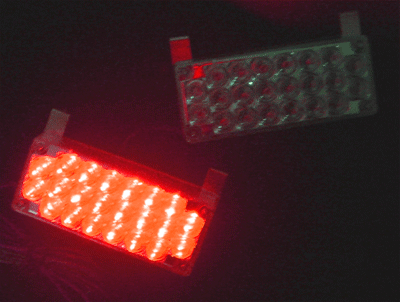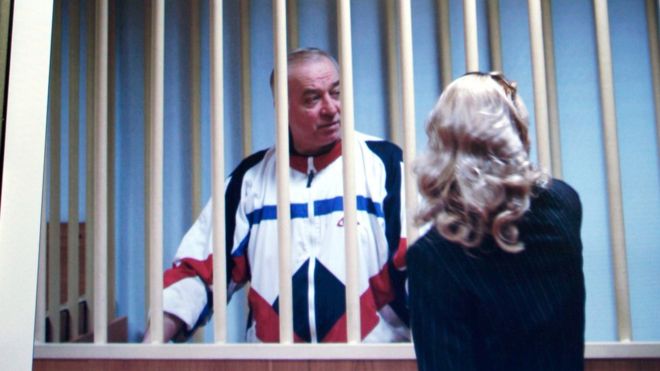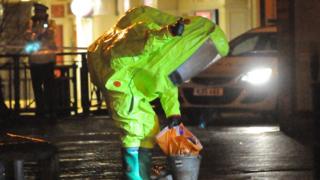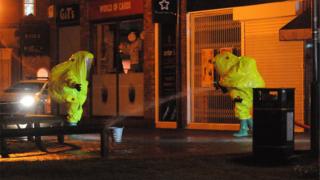You are using an out of date browser. It may not display this or other websites correctly.
You should upgrade or use an alternative browser.
You should upgrade or use an alternative browser.
RUSSIA/РОССИЯ THREAD—ASSANGE CHRGD W/ SPYING—DJT IMPEACHED TWICE-US TREASURY SANCTS KILIMNIK AS RUSSIAN AGNT
- Thread starter ☑︎#VoteDemocrat
- Start date
More options
Who Replied?a
Trump Lawyer’s Payment to Porn Star Was Reported as Suspicious by Bank
First Republic alerted Treasury Department about Michael Cohen’s $130,000 wire transfer to former adult-film actress Stormy Daniels
Michael Rothfeld
Updated March 5, 2018 1:17 p.m. ET
Michael Cohen said he missed two deadlines to make a $130,000 payment to Stormy Daniels because he couldn’t reach Donald Trump in the final days of the presidential campaign, according to a person familiar with the matter.
Photo: Richard Drew/Associated Press
The bank used by President Donald Trump’s personal lawyer to wire $130,000 to a former adult-film actress flagged the transaction as suspicious and reported it to the Treasury Department, according to a person familiar with the matter.
The lawyer, Michael Cohen, wired the money to a lawyer for former actress Stephanie Clifford, known professionally as Stormy Daniels, from an account at First Republic Bank . The money was received on Oct. 27, 2016, 12 days before the presidential election, another person familiar with the matter said. It isn’t clear when First Republic reported it to the government as suspicious.
Mr. Cohen said he missed two deadlines earlier that month to make the $130,000 payment to Ms. Clifford because he couldn’t reach Mr. Trump in the hectic final days of the presidential campaign, the person said.
Ms. Clifford was owed the money in return for signing an agreement that bars her from discussing an alleged sexual encounter with Mr. Trump in 2006, people familiar the matter said.
After Mr. Trump’s victory, Mr. Cohen complained to friends that he had yet to be reimbursed for the payment to Ms. Clifford, the people said.
First Republic and the Treasury Department declined to comment. Asked for comment, Mr. Cohen offered a two-word emailed statement: “Fake News.”
Mr. Cohen had said last month that he had “facilitated” the payment using his own funds, that the deal was a private transaction and that it didn’t violate any laws. He said he wasn’t reimbursed by the Trump campaign or the Trump Organization, his former employer, but declined to answer questions about whether he was reimbursed by Mr. Trump or anyone else.
The White House didn’t respond to a request for comment. Mr. Cohen and White House representatives repeatedly have denied any relationship between Mr. Trump and Ms. Clifford.
Ms. Clifford has said privately and in a 2011 interview with a celebrity magazine that she had a sexual encounter with Mr. Trump after meeting him at a celebrity golf tournament in Lake Tahoe, The Wall Street Journal previously reported.
A spokesman for Ms. Clifford’s lawyer, Keith Davidson, said, “Attorney Davidson can not discuss private client matters.”
The reporting of the transaction by First Republic and Mr. Cohen’s efforts to reach Mr. Trump haven’t previously been reported.
Under federal law, banks are required to flag transactions that have no business or apparent lawful purpose or that deviate inexplicably from a customer’s normal bank activity. Suspicious activity reports are filed to the Treasury’s Financial Crimes Enforcement Network, where federal investigators can access them.
Mr. Cohen created a company called Essential Consultants LLC as a vehicle for the payment to Ms. Clifford, on Oct. 17, 2016, according to Delaware state records and a person familiar with the matter. The $130,000 wire transfer to the client-trust account of Mr. Davidson, Ms. Clifford’s lawyer, was received on Oct. 27 at City National Bank in Los Angeles, the person said.
City National Bank launched an internal inquiry of its own about the payment a year after Mr. Davidson received the funds in his client-trust account there, the person said. City National sought information about the source of funds wired to Mr. Davidson’s account, the person said. The inquiry was first reported by The Washington Post.
The one-year lag between the payment by Mr. Cohen and the bank inquiry is unusual. It suggests that City National received new information that prompted it to take a fresh look at the transaction, said Charles Intriago, a former federal prosecutor and money-laundering expert.
That could include a subpoena for the client’s records or a visit by regulators, said Mr. Intriago, who created a widely used accreditation for anti-money-laundering specialists.
Special counsel Robert Mueller, who is investigating Russian interference in the 2016 election and whether aides to Mr. Trump assisted in that effort, has sought information about Mr. Cohen’s role in a proposal to build a Trump Tower in Moscow in late 2015 and early 2016, the Journal has reported. In a September 2017 statement to the Senate Intelligence Committee, Mr. Cohen said the proposal was “solely a real estate deal and nothing more” and noted it was terminated “months before the first primary.”
It is unclear whether Mr. Mueller’s office triggered the bank inquiry in this case.
A spokesman for Mr. Mueller declined to comment.
A City National representative said, “As a matter of policy, we don’t confirm or comment on inquiries from regulatory agencies or law enforcement, including subpoenas.”
Mr. Cohen worked at the Trump Organization from 2007 until after the election. As Mr. Trump took office, Mr. Cohen said he would work in private practice and act as Mr. Trump’s personal attorney.
In October 2016, with Ms. Clifford’s representatives threatening to walk away from the deal, Mr. Cohen said he stopped trying to track down Mr. Trump and used his own funds to wire the payment to Ms. Clifford’s lawyer, one of the people familiar with the matter said.
The accounts of Mr. Cohen’s actions indicate he intended to involve Mr. Trump in the deal with Ms. Clifford, although it isn’t clear whether Mr. Trump participated.
Whether Mr. Trump knew of the nondisclosure agreement and reimbursed Mr. Cohen could affect a Federal Election Commission review of the transaction into potential campaign-finance violations. A complaint filed by Common Cause, a Washington, D.C.-based nonpartisan nonprofit, said the payment amounted to an illegal campaign contribution that should have been reported. Proving any violation would require evidence of coordination between Messrs. Cohen and Trump or his campaign, campaign-finance experts say.
Mr. Cohen said in his February statement that the allegations in Common Cause’s complaints were “factually unsupported and without legal merit.”
Write to Joe Palazzolo at joe.palazzolo@wsj.com and Michael Rothfeld at michael.rothfeld@wsj.com
@DonKnock @dza @88m3 @wire28 @smitty22 @fact @Hood Critic @ExodusNirvana @Blessed Is the Man @dtownreppin214 @JKFrazier @tmonster @BigMoneyGrip @Soymuscle Mike @.r. @Dorian Breh @Dameon Farrow @TheNig @VR Tripper @re'up @Blackfyre_Berserker @Cali_livin
Last edited:
CEO of Morgan Industries
Superstar
Wow, this is why John Brennan is openly shytting on Trump. He's letting Trump know, "Yo, I know what you did."

They all know.Wow, this is why John Brennan is openly shytting on Trump. He's letting Trump know, "Yo, I know what you did."
she looks too ugly to be a high end escort.Again, if what this woman says is true, she'd be dead already
I feel like this is a distraction
Airtrack360
All Star

RUSSIA ATTEMPTED TO MURK ANOTHER SPY WHO DEFECTED TO THE U.K.!!!!!
Critically ill man 'former Russian spy'

Sergei Skripal, pictured here on the day of his sentencing in August 2006, was jailed for 13 years
A man who is critically ill after being exposed to an unknown substance in Wiltshire is a Russian national convicted of spying for Britain, the BBC understands.
Sergei Skripal, who is 66, was granted refuge in the UK following a "spy swap" between the US and Russia in 2010.
Police declared a major incident on Sunday after a man and a woman were reported ill at a shopping centre in Salisbury.
The substance has not been identified.
A number of locations in the city centre were cordoned off and the A&E department was closed.

The hospital's A&E was closed on Monday while two people were treated
Skripal, who is a retired Russian military intelligence colonel, was jailed for 13 years in 2006 for spying for Britain.
He was convicted of passing the identities of Russian intelligence agents working undercover in Europe to the UK's Secret Intelligence Service, MI6.
Russia said Col Skripal had been paid $100,000 for the information, which he had been supplying from the 1990s.
He was one of four prisoners released by Moscow in 2010 in exchange for 10 US spies, as part of a swap.
Col Skripal was later flown to the UK.
He and a woman, thought to be in her 30s, are being treated at Salisbury District Hospital.
Police are investigating whether a crime has been committed, following the incident which began at 16:15 GMT on Sunday at the Maltings shopping centre in central Salisbury.

Public Health England has not confirmed what the substance was
An area around the Maltings shopping centre and several other parts of the city were cordoned off as teams in full protective gear used hoses to decontaminate the street.
Neighbours at Skripal's home in Salisbury say police arrived around 17:00 GMT on Sunday and have been there ever since.
They said he was friendly and in recent years had lost his wife.
This breaking news story is being updated and more details will be published shortly. Please refresh the page for the fullest version.

Were you in the area at the time? Have you been affected by the incident? You can share your experience by emailing haveyoursay@bbc.co.uk.
Please include a contact number if you are willing to speak to a BBC journalist. You can also contact us in the following ways:
- WhatsApp: +447555 173285
- Tweet: @BBC_HaveYourSay
- Send pictures/video to yourpics@bbc.co.uk
- Upload your pictures/video here
- Send an SMS or MMS to 61124
Russian spy critically ill after being 'poisoned' by unknown substance in Salisbury

Sergei Skripal is being treated in hospital
A man who is critically ill after exposure to an unknown substance in Salisbury, is a former Russian spy, it is understood.
Sergei Skripal, 66, who was jailed in Russia for treason, but later came to the UK as part of a 'spy swap', collapsed in a shopping centre in Salisbury on Sunday.
He and a woman were rushed to hospital where they are still being treated.
It is thought the pair may have been exposed to the powerful synthetic drug, Fentanyl, which is up to 10,000 times more powerful than heroin and has been linked to scores of deaths in the UK.
A major incident was later declared at Salisbury hospital and its Accident & Emergency unit had to be closed.
In a statement, temporary Assistant Chief Constable, Craig Holden of Wiltshire Police, said: "The two people – a man aged in his 60s, and a woman aged in her 30s – were found unconscious on a bench in The Maltings in Salisbury.
“Police officers, as well as colleagues from the ambulance and fire services attended the scene and cordons were put in place.
“The pair, who we believe are known to each other, did not have any visible injuries and were taken to Salisbury District Hospital. They are currently being treated for suspected exposure to an unknown substance. Both are currently in a critical condition in intensive care."
“Because we are still at the very early stages of the investigation, we are unable to ascertain whether or not a crime has taken place."
Mr Skripal is a former Russian army colonel, who was convicted of passing the identities of Russian agents working in Europe to MI6.
In 2006 he was sentenced to 13 years in jail for spying for Britain, with Russian prosecutors claiming he had taken tens of thousands of pounds of the security services.
He came to the UK in 2010 as part of a spy swap, and later settled in Salisbury, Wiltshire.
@DonKnock @dza @88m3 @wire28 @smitty22 @fact @Hood Critic @ExodusNirvana @Blessed Is the Man @dtownreppin214 @JKFrazier @tmonster @BigMoneyGrip @Soymuscle Mike @.r. @Dorian Breh @Dameon Farrow @TheNig @VR Tripper @re'up @Blackfyre_Berserker @Cali_livin
Last edited:
a beta winner. well i'll be fukking damn. if someone called me that i'd have to throw hands on principal.
Ryan isn't growing shyt. The tariffs are bad for his donor's pockets.
Wisconsin that is

:ALERTRED::ALERTRED:
:shakingdamn:
@DonKnock @dza @88m3 @wire28 @smitty22 @fact @Hood Critic @ExodusNirvana @Blessed Is the Man @dtownreppin214 @JKFrazier @tmonster @BigMoneyGrip @Soymuscle Mike @.r. @Dorian Breh @Dameon Farrow @TheNig @VR Tripper @re'up @Blackfyre_Berserker @Cali_livin
@Cali_livin catch me breh I’m about to fall out :Stopitnow:
ExodusNirvana
Change is inevitable...
Just realized this idiot is gonna try to tie this whole steel and aluminum tariffs shyt to "The Wall" 



 ...we got you boys on tape
...we got you boys on tape 